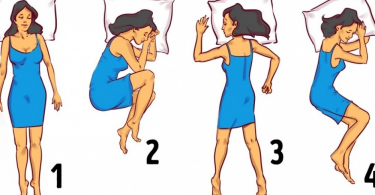
Sponsored Links
The Importance Of Getting A Full Night’s Sleep
Sleep is important, we all know that. However, how many of us actually get enough of it every now and again, let alone on a regular basis? Getting enough sleep is absolutely crucial for so many different things, and yet so many of us don’t get enough. Students in college tend to have a hard time prioritizing sleep due to busy schedules packed with classes, homework, studying, and so much more. All the same, we want to discuss exactly why we all should be putting more effort into getting enough sleep. There are countless reasons, of course, but we’ll be focusing on the most important ones.
Sleep Improves Your Mood

Let’s start with an obvious one. When you’re well-rested, you will feel better throughout the day. Sleeping well makes you feel rested, therefore, you are automatically in a better mood overall. You’ll have more energy and just feel so much better in general. So, start going to bed earlier!
Sleep Can Boost Your Immune System

Once your body gets the sleep it needs, your immune cells and proteins are able to get the rest they need to fight off any infections or other things that might come their way. According to experts, proper sleep can even make vaccines more effective. It makes sense since sleep is the body’s time to rest and reset.
Sleep Helps Your Focus And Productivity

Advertisements
Sleep is a crucial component for many aspects of brain function. For all you students out there, this is vital information. Getting enough sleep will improve cognition, concentration, productivity, and performance. Naturally, all these things will be affected negatively by sleep deprivation. One study found that those who weren’t able to get enough sleep made 36% more mistakes in their work than those who got enough sleep. Another study found that sleep deprivation can affect aspects of brain function the same way as alcohol intoxication.
Sleep Prevents Heart Disease And Stroke

Here we see that both sleep quality as well as duration make a difference. Getting enough quality sleep can have a serious effect on serious health risk factors. Fifteen different studies found that those who didn’t get enough sleep were at greater risk of heart disease and stroke than those who slept for 7-8 hours a night.
Sleep Can Lower Inflammation In The Body

Sleep loss has been linked to long-term inflammation, in the digestive tract especially. One study found that people who were sleep-deprived with Crohn’s disease were twice as likely to relapse than those who slept well.
Sleep Causes You To Eat Fewer Calories

Sponsored Links
Sponsored Links
Studies have shown that people who get enough sleep tend to eat fewer calories on a regular basis. On the flip side, those who were sleep-deprived had a bigger appetite and ate more calories. Sleep deprivation tends to disrupt daily fluctuations in appetite and hormones, so it causes poor appetite regulation. In other words, the body needs to get its energy elsewhere when it doesn’t get it from sleep, so you get hungrier which leads you to eat more calories and gain that energy from food.



Comments